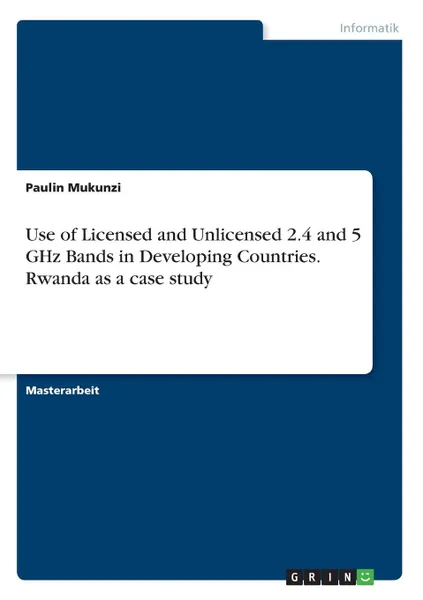Use of Licensed and Unlicensed 2.4 and 5 GHz Bands in Developing Countries. Rwanda as a case study 12+
Автор: Paulin Mukunzi
82 страницы
Категория: Энциклопедии, справочники
ISBN: 9783668667099
Язык: Немецкий
📒 Masterarbeit aus dem Jahr 2009 im Fachbereich Informationswissenschaften, Informationsmanagement, , Sprache: Deutsch, Abstract: In many countries, Spectrum Management has been under growing attention and debate in the last few years. Traditionally spectrum management has been largely based in a somewhat static approach, with allocations determined by the International Telecommunications Union (ITU), and national governments and telecommunication regulators responsible for spectrum assignment, monitoring and enforcement. In general, spectrum has been attributed on an exclusive basis, through a licensing regime. Recently several countries shifted towards different models, introducing different approaches such as spectrum pricing or trading, and exploring decentralized structures, such as the use of unlicensed bands. Currently, equipments based on unlicensed wireless technologies (WLAN, WiMax) are widely available commercially, inexpensive, and require little technical expertise for installation. Such equipment can be used to create data networks without investing time and money in acquiring a spectrum license or needing to depend on a telecommunications operator for use of the airwaves. Since on one hand the unlicensed spectrum and low-cost wireless technologies that operate in the 2.4 and 5 GHz bands is of particular value in that, it has the potential to substantially impact accessibility and availability of information and telecommunication services. And on other hand in the...
Мнения
